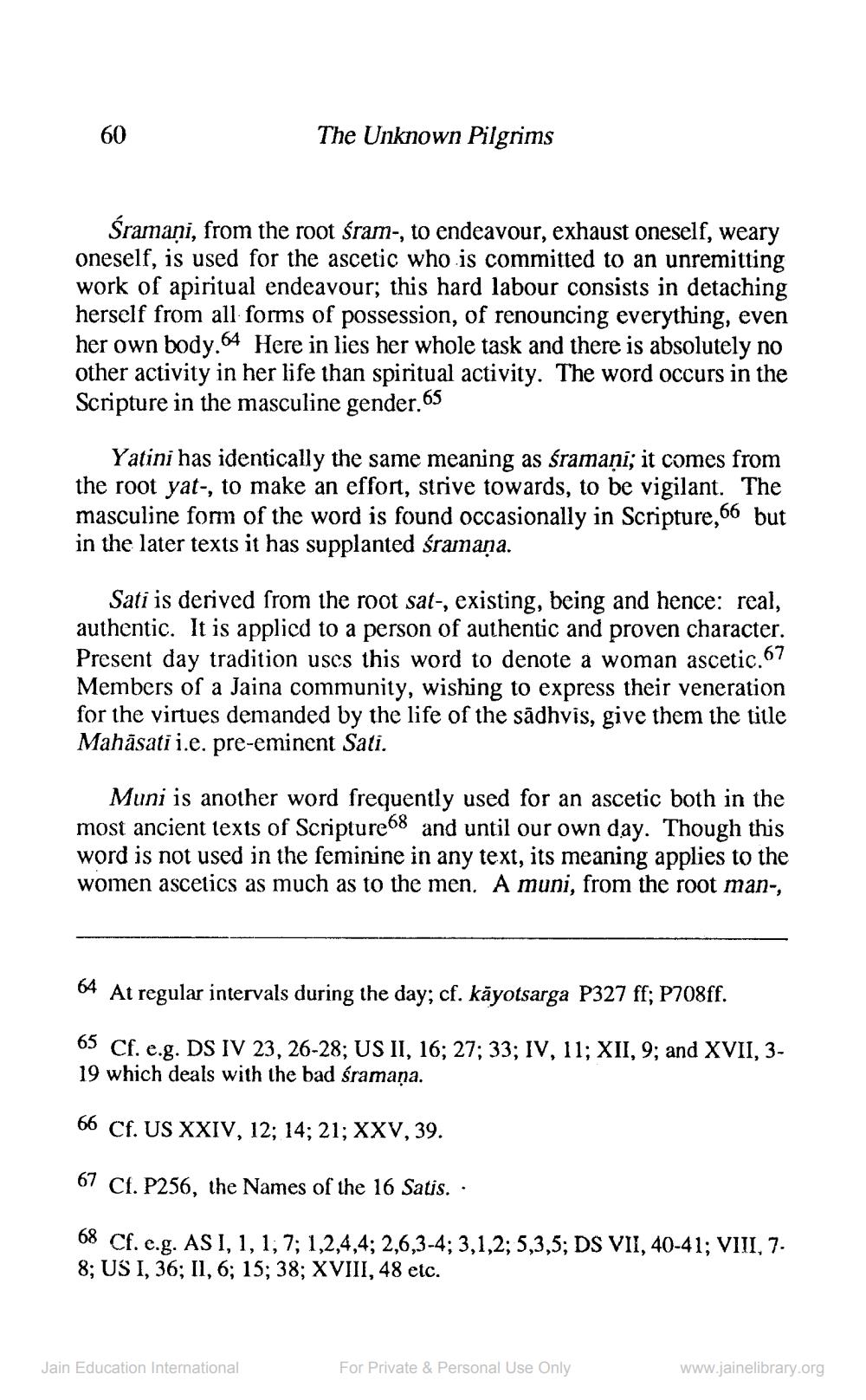________________
60
The Unknown Pilgrims
Šramani, from the root śram-, to endeavour, exhaust oneself, weary oneself, is used for the ascetic who is committed to an unremitting work of apiritual endeavour; this hard labour consists in detaching herself from all forms of possession, of renouncing everything, even her own body. 64 Here in lies her whole task and there is absolutely no other activity in her life than spiritual activity. The word occurs in the Scripture in the masculine gender.65
Yatini has identically the same meaning as śramaņi; it comes from the root yat-, to make an effort, strive towards, to be vigilant. The masculine form of the word is found occasionally in Scripture, 66 but in the later texts it has supplanted śramana.
Sati is derived from the root sat-, existing, being and hence: real, authentic. It is applicd to a person of authentic and proven character. Present day tradition uses this word to denote a woman ascetic.67 Members of a Jaina community, wishing to express their veneration for the virtues demanded by the life of the sādhvis, give them the title Mahāsati i.e. pre-eminent Sati.
Muni is another word frequently used for an ascetic both in the most ancient texts of Scripture68 and until our own day. Though this word is not used in the feminine in any text, its meaning applies to the women ascetics as much as to the men. A muni, from the root man-,
64 At regular intervals during the day; cf. kāyotsarga P327 ff; P708ff.
65 Cf. e.g. DS IV 23, 26-28; US II, 16; 27; 33; IV, 11; XII, 9; and XVII, 319 which deals with the bad śramaņa.
66 Cf. US XXIV, 12; 14; 21; XXV, 39.
67 Cf. P256, the Names of the 16 Satis. .
68 Cf. e.g. AS I, 1, 1,7; 1,2,4,4; 2,6,3-4; 3,1,2; 5,3,5; DS VII, 40-41; VIII, 7. 8; US 1, 36; 11, 6; 15; 38; XVIII, 48 etc.
Jain Education International
For Private & Personal Use Only
www.jainelibrary.org




